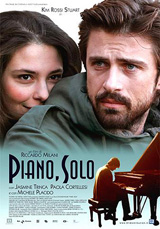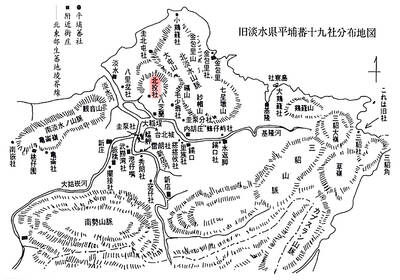| Smother Perhaps a little too reminiscent of her previous, terribly received feature Because I Said So, Diane Keaton’s latest effort has her moving in with her son (Dax Shepard) and daughter-in-law (Liv Tyler) and retying the apron strings as quickly as possible, with dire consequences for the son’s interest in family planning. This is opening in Taiwan before the US, which doesn’t bode well. Nor does the trailer, which comes across as a mediocre sitcom pilot. That leaves us with Keaton’s charisma, but here, once again, she is playing a meddling irritant. Get a new agent, Ms Keaton! |  |
| Sweet Rain If Death knocks on your door, be grateful if he looks like a smoldering Takeshi Kaneshiro (金城武) with a friendly hound rather than some rotting husk with a raspy voice, a scythe and a dog from hell; be even more grateful if he decides to hang around for seven days before deciding whether you should perish. There are shades of Brad Pitt’s Grim Reaper character from Meet Joe Black in this adaptation of the book by Kotaro Isaka. A number of characters are marked for death in this romantically edged, other-worldly fantasy, but will they meet their maker? Also known as Accuracy of Death, the jarringly dissimilar alternate titles actually make up the full Japanese name of this movie. |  |
| Piano, Solo This is a biopic of the troubled Italian jazz pianist Luca Flores, as played by award-winning actor-director Kim Rossi Stuart. As a boy Flores witnessed the death of his mother in a road accident in Africa, and for the rest of his life he was tormented by this incident. The music of his childhood shaped his career, leading him to the world of jazz, but despite success and recognition, his demons were never far behind and they eventually claimed him. Virtually unreleased except in Italy, for most viewers this film will be a complex introduction to one of Europe’s jazz greats — and a portrait of a man whose music was all too heavily grounded. |  |
| Apartment More Ringu recycling here, this time from South Korea. A woman moves into an apartment block opposite another where dead bodies make all too frequent appearances. Surprisingly well received by Variety and other reviewers as a workable, simple shocker. Released in 2006, this is also known as APT and 9:56, the latter being the time of night after which you’d better not turn off the lights, as the Taiwanese poster says. |  |
| Love Now Through a twist of fate, two gorgeous, professional couples whose marriages are in the doldrums swap partners without realizing it. From there it’s all downhill unless this unfaithful foursome can face their problems quickly and directly. Also known as Changing Partners, this is the latest in a DVD package from South Korea to screen at the Baixue theater in Ximending. |  |

Seven hundred job applications. One interview. Marco Mascaro arrived in Taiwan last year with a PhD in engineering physics and years of experience at a European research center. He thought his Gold Card would guarantee him a foothold in Taiwan’s job market. “It’s marketed as if Taiwan really needs you,” the 33-year-old Italian says. “The reality is that companies here don’t really need us.” The Employment Gold Card was designed to fix Taiwan’s labor shortage by offering foreign professionals a combined resident visa and open work permit valid for three years. But for many, like Mascaro, the welcome mat ends at the door. A

The Western media once again enthusiastically forwarded Beijing’s talking points on Japanese Prime Minister Sanae Takaichi’s comment two weeks ago that an attack by the People’s Republic of China (PRC) on Taiwan was an existential threat to Japan and would trigger Japanese military intervention in defense of Taiwan. The predictable reach for clickbait meant that a string of teachable moments was lost, “like tears in the rain.” Again. The Economist led the way, assigning the blame to the victim. “Takaichi Sanae was bound to rile China sooner rather than later,” the magazine asserted. It then explained: “Japan’s new prime minister is

NOV. 24 to NOV. 30 It wasn’t famine, disaster or war that drove the people of Soansai to flee their homeland, but a blanket-stealing demon. At least that’s how Poan Yu-pie (潘有秘), a resident of the Indigenous settlement of Kipatauw in what is today Taipei’s Beitou District (北投), told it to Japanese anthropologist Kanori Ino in 1897. Unable to sleep out of fear, the villagers built a raft large enough to fit everyone and set sail. They drifted for days before arriving at what is now Shenao Port (深奧) on Taiwan’s north coast,

Divadlo feels like your warm neighborhood slice of home — even if you’ve only ever spent a few days in Prague, like myself. A projector is screening retro animations by Czech director Karel Zeman, the shelves are lined with books and vinyl, and the owner will sit with you to share stories over a glass of pear brandy. The food is also fantastic, not just a new cultural experience but filled with nostalgia, recipes from home and laden with soul-warming carbs, perfect as the weather turns chilly. A Prague native, Kaio Picha has been in Taipei for 13 years and